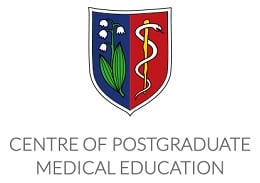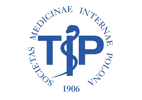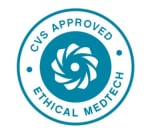Wtorek, 27 września 2022
Centrum Dydaktyczno-Kongresowe Wydziału Lekarskiego
Uniwersytetu Jagiellońskiego Collegium Medicum
ul. św. Łazarza 16, 31-530 Kraków
Zobacz na mapie
Forum Edukacji Medycznej 2022
Powitanie i wprowadzenie - Komitet Organizacyjny
Sesja 1: Projektowanie i wdrażanie programu nauczania (curriculum) na kierunkach medycznych
Tworzenie nowego programu nauczania, wymieńmy się doświadczeniem cz. 1
prof. Katarzyna Drabko
Uniwersytet Medyczny w Lublinie
Tworzenie nowego programu nauczania, wymieńmy się doświadczeniem cz. 2
Prof. Janusz Janczukowicz
Uniwersytet Medyczny w Łodzi
Tworzenie nowego programu nauczania, wymieńmy się doświadczeniem cz. 3
prof. Jadwiga Mirecka
Uniwersytet Jagielloński Collegium Medicum
Ocena postępów studenta jako istotny element programu nauczania
lek. med. Łukasz Balcerzak
Uniwersytet Jagielloński Collegium Medicum
Dyskusja
Przerwa kawowa
Sesja 2: Symulacja medyczna – sztuka debriefingu
Jak dobrze przygotować się do debriefingu
dr n. med. Łukasz Gąsiorowski
Uniwersytet Medyczny im. Karola Marcinkowskiego w Poznaniu
Modele debriefingu – jaki wybrać
dr n. med. Marcin Kaczor
Warszawski Uniwersytet Medyczny
Narzędzia wspierające prowadzenie debriefingu
dr n. med. Grzegorz Cebula
Uniwersytet Jagielloński Collegium Medicum
Wspieranie nauczycieli akademickich w zakresie rozwijania umiejętności prowadzenia zajęć metodą symulacji
lek. med. Szymon Michniewicz
Uniwersytet Zielonogórski
Dyskusja
Przerwa obiadowa
Sesja 3: Organizacja obiektywnych strukturyzowanych egzaminów klinicznych – wymiana doświadczeń
Organizacja OSCE dla kierunku lekarskiego Uniwersytet Jagielloński Collegium Medicum
lek. med. Agata Stalmach-Przygoda
Centrum Innowacyjnej Edukacji Medycznej, Uniwersytet Jagielloński Collegium Medicum
Organizacja egzaminów z zakresu oceny umiejętności w ramach poszczególnych przedmiotów (kierunek lekarski)
mgr Adam Ubych
Śląski Uniwersytet Medyczny
Organizacja egzaminów oceniających umiejętności dla kierunków pielęgniarstwo i położnictwo
dr n. med. Monika Przestrzelska
Uniwersytet Medyczny im. Piastów Śląskich we Wrocławiu
Organizacja oceniających umiejętności dla kierunku ratownictwo medyczne
Kraków WNoZ Zakład Ratownictwa Medycznego
Dyskusja
przerwa kawowa
Sesja 4: Uczenie rozumowania klinicznego na kierunkach medycznych
Rozumowanie kliniczne – dlaczego warto uczyć
lek. med. Małgorzata Sudacka
Uniwersytet Jagielloński Collegium Medicum
Nauka rozumowania klinicznego wsparta technologią komputerową
lek. med. Ada Bogusz
Uniwersytet Jagielloński Collegium Medicum
Jak skutecznie wdrażać nauczanie rozumowania klinicznego w program studiów
mgr Joanna Fąferek
Uniwersytet Jagielloński Collegium Medicum
Błędy poznawcze i ich wpływ na rozumowanie kliniczne
dr hab. n. med. Michał Nowakowski
Uniwersytet Jagielloński Collegium Medicum
Dyskusja
Zakończenie i podsumowanie – Komitet Organizacyjny
Środa, 28 września 2022
Centrum Dydaktyczno-Kongresowe Wydziału Lekarskiego
Uniwersytetu Jagiellońskiego Collegium Medicum
ul. św. Łazarza 16, 31-530 Kraków
Zobacz na mapie
Welcome and introduction – Organizing Committee
Session I: Technology enhanced medical education
Digital health education: what are the needs of a 21st century curriculum?
Prof. Josip Car
Imperial College London, UK
Use existing internet resources for learning surgery
Prof. Michał Pędziwiatr
Jagiellonian University, Poland
Simulation in endoscopic procedures: a step forward in postgraduate physician training
Prof. Michał Pirożyński
Centre of Postgraduate Medical Education, Poland
Medical podcasts - the new lecture?
Dr. Amie Burbridge
European Federation of Internal Medicine
Students' experiences during clinical training versus what they say afterwards: momentary assessment using mobiles compared to retrospective interviews
Prof. Klas Karlgren
Karolinska Institutet, Sweden
Panel discussion
Refreshment break
Session II: Teaching clinical reasoning
Teaching clinical reasoning: four key lessons from the literature
Prof. Steven Durning
Uniformed Services University of the Health Sciences, USA
Building a European collection of virtual patients for clinical reasoning training within the iCoViP project
Prof. Inga Hege
University of Augsburg, Germany
Developing, implementing, and disseminating an adaptive clinical reasoning curriculum for healthcare students and educators: the outcomes of a European project
Prof. Andrzej A. Kononowicz
Jagiellonian University, Poland
Clinical reasoning and shared decision making: how to teach
Prof. Martin Härter
University Medical Center Hamburg-Eppendorf, Germany
Clinical reasoning mapping: a new tool for exploring clinical reasoning
Prof. Dario Torre
University of Central Florida, USA
Panel discussion
Lunch braek
Session III: Curriculum design at medical schools
How to prepare medical curriculum: Jagiellonian University’s experience
Prof. Przemko Kwinta
Jagiellonian University, Poland
Employing existing competency frameworks to customize curricular design
Prof. Jill Rudkowski
McMaster University, Canada
WHO/Europe, the Pan-European Leadership Academy (ELA) curriculum design
Prof. Janusz Janczukowicz
Medical University of Lodz, Poland
Medical curriculum design from start to finish
Prof. Martin Fischer
Ludwig Maximilian University of Munich, Germany
Designing together: An innovative approach to guide curriculum design and development
Dr. Ilana Bayer
McMaster University, Canada
Panel discussion
Closing remarks
Czwartek, 29 września 2022
Centrum Dydaktyczno-Kongresowe Wydziału Lekarskiego
Uniwersytetu Jagiellońskiego Collegium Medicum
ul. św. Łazarza 16, 31-530 Kraków
Zobacz na mapie
Hands-on workshops
09:00-11:00
Speakers and trainers:
Prof. Jill Rudkowski
Max. number of participants: 20
Fee: free of charge
Eligible participants: Physicians and medical learnes
Duration: 2 hours (30 min presentation and 90 minutes case-based learning)
Rationale: Assessing and addressing professionalism can feel subjective. Using an established framework can enable an objective measure which benefits both the assessor and the learner being assessed. It can also help inform specific remediation strategies.
Content: The session will start with an overview of professionalism and why it is relevant as part of a formal learner assessment process. We will introduce the Professionalism in Practice (PIP) framework developed and used at McMaster and apply it to case-based learner scenarios. Participants will be able to practice using the framework and guided through implementing remediation strategies for commonly encountered learner professionalism issues.
Objectives:
- Discuss challenges in addressing professionalism in the context of medical learners
- Review the McMaster Professionalism in Practice framework
- Apply the PIP framework to cases of student professionalism concerns in pre-clinical and clinical training
- Discuss approaches to remediation for students with professionalism difficulties
14:00-15:30
Speakers and trainers:
Anna Żądło, MEd in Health Promotion and Sociotherapy, MSc in Public Health, BA in Emergency Medicine (Paramedic).
Ian Perera is a resident physician at the University Hospital in Cracow and a lecturer in the Department of Medical Education at Jagiellonian University. He has BSc in Biology and Life Sciences at McGill University and MD from Jagiellonian University
Max. number of participants: 12Fee: free of charge
Eligible participants: (students / doctors or both) both
Duration: 90 minutes
Rationale: Teaching medicine in English is a widespread practice. For both teachers and students English is often a second language. There is a demand that future healthcare professionals acquire the knowledge and skills needed to promote global citizenship and appreciation of cultural diversity, as suggested by the Sustainable Development Goals. Evidence-based scholarship of teaching and learning practices for the international classroom shows that the CLIL approach (recommended by the European Commission) is an excellent solution to emerging challenges.
Content: Workshop including discussion, sharing of experience and enrichment activities on CLIL in medical education.
Objectives:
- What happens to our brain when we learn through a second language?
- How does CLIL support medical education?
- How CLIL works at medical universities in Hungary, Poland and Sweden? Experience gathered https://clilmed.eu/ the Erasmus+ Strategic Partnership Project.
- How to adapt a course material to the CLIL methodology?
- https://www.youtube.com/watch?v=EYam2PoR9AU
16:30-18:00
Speakers and trainers:
Prof. Roman Jaeschke (McMaster University, Canada)
Max. number of participants: 12
Fee: free of charge
Eligible participants: Physicians and students
Duration: 1 hour 30 minutes
Rationale: Current clinical practice is frequently guided by the results of clinical trials. Ability to look for and identify elements of reporting of clinical trials which may distort their real clinical meaning is relevant for clinicians and policy makers.
Content: This workshop will use clinical examples to explore issues choosing appropriate outcomes, reporting relative and absolute effects of treatments, generalizing results, and moving from evidence to action.
Objectives: To gain skills in assessing the reporting of key elements of planning, conducting and reporting of clinical trials in order to be able to independently judge their clinical relevance and applicability.














